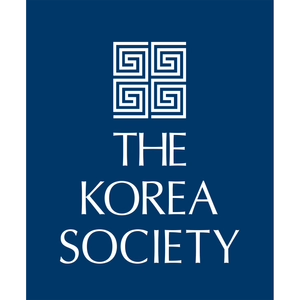
How to strike a balance between mainstream and targeted efforts for immigrant integration in Europe?
07/14/14 • 26 min
Previous Episode

What is the role of NGOs in the assisted voluntary returns of asylum seekers and irregular migrants?
Derek McGhee and Claire Bennett, University of Southampton, give a talk for the COMPAS Breakfast Breifing series Citizens may be broadly in agreement with government immigration policy and acknowledge the consequent logic of illegality and deportation, but its actual practice can be deeply unsettling, challenging liberal respect for physical integrity and freedom of choice. State funded ‘Assisted Voluntary Return’ (AVR) programmes seem to resolve these contradictions and are on the increase across Europe. Returnees are not subjected to outward mechanisms of enforcement (handcuffs, guards, etc.) but rather ‘choose’ to return and are granted a support package to reintegrate. NGOs are becoming heavily involved in these programmes, and in the UK the entire programme is implemented by a refugee charity, Refugee Action. This briefing draws on ‘Tried and Trusted ? the Role of NGOs in the Assisted Voluntary Return of Refused Asylum Seekers and Irregular Migrants’ a joint research project between the Centre for Population Change, University of Southampton and COMPAS, Oxford University. It discusses how ‘choice’ is understood in the context of state enforced destitution and ‘illegality’. Does AVR make immigration enforcement more acceptable in liberal democracies? Does the focus on choice mean we miss questions of justice? How do NGOs implementing the programme negotiate these tensions? Can NGOs maintain independence when funded by governments? Does this relationship open space for weighty advocacy’ or are NGOs simply ‘doing the government’s dirty work’? These issues are also discussed in relation to detention centres, where the Home Office has recently removed access to AVR. AVR is a laboratory for the development of new forms of co-operation between states and NGOs.
Next Episode

The fundamental social rights of irregular migrants under the European Social Charter: Central or marginal to their access to services in Europe?
COMPAS Seminar Series Trinity 2014- Borders of the welfare state: Exploring the tensions between migration enforcement and welfare state entitlements he European Social Charter (ESC) is the socio-economic 'sister' instrument of the ECHR. The text of the ESC contains a comprehensive list of social rights, which are generally binding on the vast majority of European states, and its provisions have exerted a considerable influence over the development of national and EU legal standards (including the EU Charter of Fundamental Rights). However, a tension exists between the universal nature of these rights and the limited personal scope of the ESC, which in general exempts irregular migrants from its scope of protection. The European Committee on Social Rights (ECSR), the body which interprets the ESC, has tried to bridge this tension by setting out a minimum floor of social protection which should apply to all irregular migrants, in decision such as Defence of Children International v Netherlands. However, states have resisted this interpretation of the ESC, and it remains to be seen whether this minimum floor of basic social rights protection will become an effective means of guaranteeing irregular migrants access to essential services across Europe.
If you like this episode you’ll love
Episode Comments
Generate a badge
Get a badge for your website that links back to this episode
<a href="https://goodpods.com/podcasts/centre-on-migration-policy-and-society-compas-3722/how-to-strike-a-balance-between-mainstream-and-targeted-efforts-for-im-165246"> <img src="https://storage.googleapis.com/goodpods-images-bucket/badges/generic-badge-1.svg" alt="listen to how to strike a balance between mainstream and targeted efforts for immigrant integration in europe? on goodpods" style="width: 225px" /> </a>
Copy




